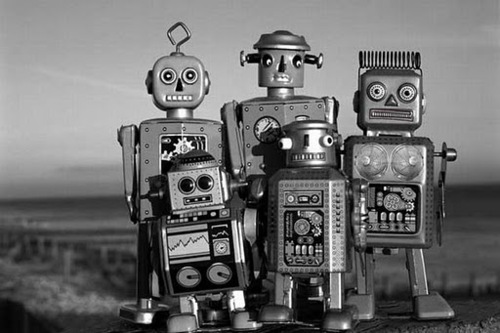From Brian Handwerk’s new National Geographic piece about the next wave of robot learning:
“Would a robot serving you coffee in bed make waking up easier on weekday mornings? Could a household robot help an elderly relative who is living alone? How would you like to climb into a robotic car and eat breakfast with the kids while you’re all driven to school and work?
These scenarios may sound like science fiction, but experts say they’re a lot closer to becoming reality than you probably think.
Brown University roboticist expects a near-term robot revolution that will echo the computing revolution of recent decades. And he says it will be driven by enabling robots to learn more like humans do—by watching others demonstrate behaviors and by asking questions.
‘The robots you’re seeing now mostly are analogous to the mainframe computers of the 1970s,’ Jenkins said. ‘But you’re starting to see things develop. The vacuum cleaners, the drones, those are the initial steps,’ he said, referring to iRobot’s Roomba vacuum cleaner, which has autonomously cleaned millions of homes since its 2002 debut.”

